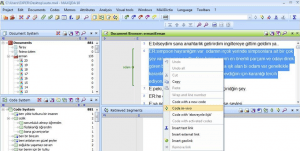 This day was spent considering, conceiving, creating, piloting and launching an online questionnaire/survey in response to a Doctoral Training Research Methods Module assignment.
This day was spent considering, conceiving, creating, piloting and launching an online questionnaire/survey in response to a Doctoral Training Research Methods Module assignment.
While not a lengthy project (in terms of questions/scope), the amount of planning and reflexivity was not trivial. This is because the activity occurs at an extremely poignant time in my research trajectory; specifically, implementing interviews for at-risk individuals that form that underpinnings of the first stage of my research.
Specifically, critical Participant Public Information studies (in the format of both focus groups and questionnaires) determine whether or research participants confirm my proposed hypotheses. Without their “buy in” and willingness to tolerate wearable devices, my PhD Project will not “have the legs” to withstand the community’s rigor regarding respect, difference and adaptation. Until this point in my academic career, I had not explicitly defined any guideposts with respect to the scope, design and implementation of a PPI questionnaire and its related guidance and adaptability to focus group input; hence, the timing could not have been better.
Once I completed and deployed the questionnaire, I prepared for additional peer review assignments and editorial posts by completing half of the modules in the academy program I mentioned I enrolled in earlier this week. My goal is to complete the remaining modules within a week’s time (including the generation of two pre-print reviews) so that I may focus only on my mentoring role my colleague. Looking further into the future, I intend on requesting my supervisors consider me as a volunteer/assistant in their peer review roles by helping alleviate their schedules.
Before the end of the day, I completed mapping out the remaining KL Seminar announcements for February 2002’s events. Even though this process hasn’t been fully automated, my intention is to do as much as I can via computer macros; such that, when it comes time to hand-off the opportunity to my successor, their job will be made that much easier.
And with that, tomorrow starts another interesting and hopefully productive week.






